Opinion
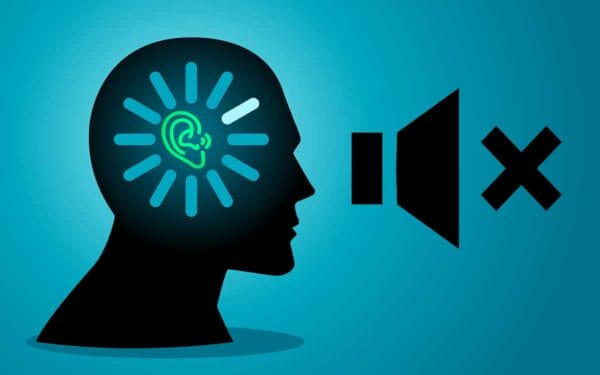
In a recent and significant ruling, a federal judge in Texas deemed the prohibition of home distilling unconstitutional, highlighting a critical victory for personal freedoms and federalism.
This decision, predicated on the overreach of federal power and its misapplication under the Commerce Clause, offers a compelling blueprint for challenging other overextended regulations. Among these, the inclusion of firearms suppressors, or silencers, in the National Firearms Act (NFA) stands out as ripe for reconsideration.
The Home Distilling Ruling: A Brief Overview
The case involved hobbyists who challenged the federal ban on home distilling. The court found that this prohibition did not serve the federal government’s tax revenue interests, as it applied to noncommercial production. Moreover, the judge rejected the argument that the ban was justified under the Commerce Clause, stating that the activities of these hobbyists did not substantially affect interstate commerce. This ruling underscores a crucial point: the federal government’s power is not a blank check, and its regulations must align with the limited and enumerated powers granted by the Constitution.
The Case for Removing Suppressors from the NFA
Firearms suppressors, regulated under the NFA, are subject to stringent controls that include a $200 tax stamp, extensive background checks, and long waiting periods. However, these regulations, originally intended to curb organized crime in the 1930s, now appear outdated and overly restrictive, especially when considering noncommercial, personal use.
- Tax Revenue Justification | A Misfit: Similar to the home distilling scenario, the federal government’s justification for regulating suppressors under the guise of tax revenue protection is tenuous at best. Suppressors for personal use do not significantly contribute to federal tax revenues. The $200 tax stamp is a relic of the past, when it represented a substantial financial barrier. Today, it is merely a bureaucratic hurdle that does not align with contemporary fiscal realities.
- Public Safety Concerns | A Misunderstanding: Ignorant critics argue that suppressors pose a public safety risk by enabling criminal activity. However, suppressors do not silence firearms; they only reduce the noise to safer levels, protecting the hearing of law-abiding gun owners. In countries with stringent gun control laws, such as the UK and parts of Europe, suppressors are sold over the counter and encouraged for this very reason. The notion that suppressors are tools of criminals is largely unfounded, as their use in crimes is exceedingly rare.
- Interstate Commerce | Distinguishing Personal Use: While many suppressors are purchased from manufacturers, which involves interstate commerce, the regulation of suppressors under the Commerce Clause is potentially flawed when it comes to noncommercial, personal use. The home distilling ruling suggests limits on federal power over activities that do not cross state lines or impact the broader market. Therefore, for those who manufacture suppressors for personal use and not for sale, the NFA’s control could be seen as an overreach that does not meet the substantial effects test under the Commerce Clause.
- Second Amendment Rights | An Infringement: The right to keep and bear arms is enshrined in the Second Amendment. Suppressors, as firearm accessories, should be considered within the scope of this right. The NFA’s cumbersome process infringes upon this right by imposing unnecessary barriers on law-abiding citizens seeking to protect their hearing and use of firearms safely. Just as the court in Texas recognized the limits of federal authority over home distilling, it is time to recognize these limits concerning personal use suppressors.
The Path Forward: Legislative & Judicial Remedies
To rectify this overreach, Congress should consider amending the NFA to remove suppressors from its purview, especially for personal use. Additionally, litigation similar to the home distilling case can be pursued to challenge the constitutionality of suppressor regulations under the NFA. By leveraging the principles of limited government power, individual freedoms, and states’ rights, advocates can make a strong case for deregulating suppressors.
Protect My Hearing Now!
The federal ruling on home distilling has set a precedent that champions personal freedoms and the Constitution’s limitations on federal power. Applying this reasoning to suppressors reveals a clear path to rectifying an outdated and overreaching regulation. For the sake of hearing protection and the reaffirmation of our constitutional rights, it is time to remove personal use suppressors from the National Firearms Act.
This change would not only benefit law-abiding gun owners but also reaffirm the principles of a government that respects and upholds individual liberties.
Read Related: Federal Judge Rejects the Government’s Excuses for Banning HomeMade Liquor
About Tred Law
Tred Law is your everyday patriot with a deep love for this country and a no-compromise approach to the Second Amendment. He does not write articles for Ammoland every week, but when he does write, it is usually about liberals Fing with his right to keep and bear arms.

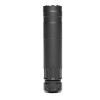
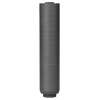
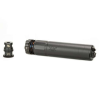
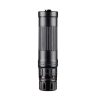


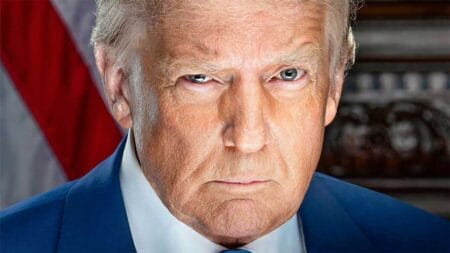

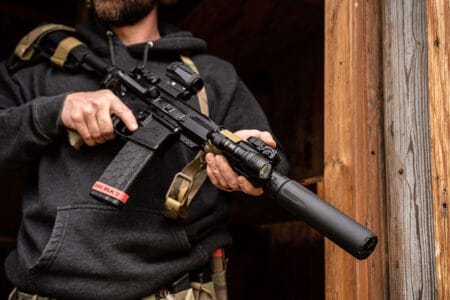
It would not take much to get rid of BATFE. BATFE was created by a memo and not an Act of Congress. So BATFE has no “high cover”. If the right person signed a memo revoking the first memo, then poof, BATFE is gone.
The NFA, however, was created by an act of Congress, and would need to be repealed by another act of Congress. Someone would have to call in a lot of favors, and make a lot of donations to get that done.
This is a good approach to rolling back the excessive burdens of an out of control administrative state. Silencers should never have been part of the National Firearms Act. The NFA is a historical curiosity, a monument to sophomoric theories of crime control. It should be repealed entirely. The removal of silencers/suppressors is a good first step.
Oh, and the requirement for a tax stamp for a suppressor comes from the group that claims they want to protect the children so they should remove any requirements for a suppressor because they want to do it for the children.
Ya, right! Coolaid sheeple BS.
I doubt that Congress will pass legislation removing suppressors from the NFA. It would not get 60 votes in the Senate. The only way that it will happen is either a Trump ATF or DOJ issue a ruling that suppressors are in common use per 2016’s Caetano v. MA. Caetano states that if 200,000 are possessed by the people an arm is not unusual. Per Heller if an arm is not both dangerous and unusual they are in common use. This would be the quickest way to end the registration nonsense. The other more permanent way is to file suits… Read more »
shitcan atf no one else would touch unconstitutional nfa to enforce it done
I own several and have used them with several different calibers. That “sharp report” you heard was probably the bullet breaking the sound barrier when it went supersonic. You usually can’t hear that over the sound of the gun firing unsuppressed. Getting 5.56 and .308 down to hearing safe levels depends on several factors including the type of suppressor, cartridge loading, and barrel length. The same can be said for shooting 9mm suppressed. Some calibers, such as .45ACP, are already subsonic and are naturally very quiet when suppressed. Many calibers, however, are supersonic and will still be above hearing safe… Read more »